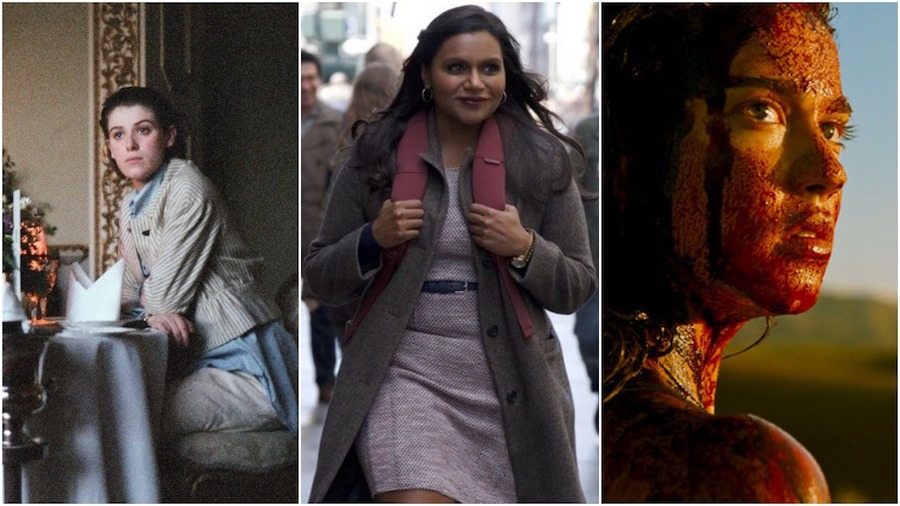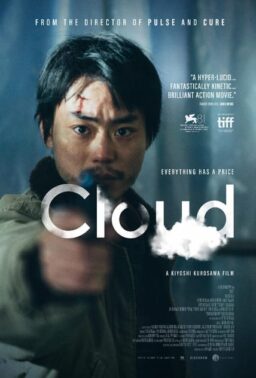“Men have had every advantage of us in telling their own story. Education has been theirs in so much higher degree; the pen has been in their hands.”
—Jane Austen, Persuasion
Jane Austen’s sentiment may be two centuries old but much of it still holds true, even if the pen is now also increasingly in the hands of women. But who gets to tell their story is more important than ever in shaping how people are seen, and that’s being reflected in independent cinema to an increasing degree. There is a small but growing crop of films that tackle something deeper—that of who gets to write in the first place, and how the stories we tell can warp reality, not only for the writer, but for the world at large.
If you’re part of the group who’s always seen your story depicted in a variety of ways with various degrees of complexity, it can be hard to appreciate the impact of seeing yourself on-screen. When you get to tell your own story, the effect isn’t just increased, it’s seismic. In her now-famous essay, “Visual Pleasure and Narrative Cinema,” Laura Mulvey took a psychoanalytic approach to discussing the male gaze and how women were portrayed on-screen, as well as the inevitable fallout when one gender was treated as objects of consumption for another.
There is of course far more to it than this. It isn’t just that women have been mostly viewed through the eyes of men in film, it’s that women were continually denied the opportunity to tell their own stories. Not that there haven’t been periods when women were behind camera, such as the early days of Hollywood or the gendered boom of the ‘90s, which saw acclaimed films as diverse as “A League of Their Own,” “Orlando,” “The Watermelon Woman,” and “The Virgin Suicides,” all written (or in the case of “A League of Their Own,” co-written) by women, explore the stark contrasts in how men and women were expected to express themselves.
But such periods of time have, until recently, felt like anomalies. It essentially took the enormous upheaval, partially brought about by the internet and streaming culture, for the rules to get something of an update, if not a total rewrite. Not to mention a shocking series of scandals which brought down men who were once considered too big (or at least too powerful) to fail.

Recent films are doing far more than merely condemning; they’re delving into how easily women can be silenced. Take the recently released – and very acclaimed – “The Souvenir,” written and directed by Joanna Hogg. Autobiographical in nature, the film quietly but forcefully explores how a number of factors nearly prevented even Julie (Honor Swinton Byrne), a privileged white woman, from achieving her dreams of filmmaking. Julie’s affluent background and connections may give her the resources to overcome obstacles which her peers find far more daunting, but when you add a toxic relationship to a more conservative environment that can restrict everything from a mindset to how much room you’re allowed to take up in your own bed, what emerges is the portrait of the artist as a young woman who almost never was.
If you’re bereft of these resources, the situation can become even more dire. The 2018 film “Can You Ever Forgive Me?” explores just how much women struggle when their very existence challenges societal norms. Lee Israel (Melissa McCarthy) is the kind of anti-heroine that’s rarely even acknowledged, let alone depicted in cinema: a middle-aged, prickly, overweight lesbian writer. Her desperation, partly due to constant rejection from a publishing industry uninterested in her voice while constantly rewarding her male peers with success and fame, drives her to forge letters from famous writers. In contrast to other protagonists who turn to dishonest means to make a living, Lee isn’t an impossibly cool, stylish adventurer looking for her next rush; she’s simply trying to pay her bills. Directed by Marielle Heller, and co-written by Nicole Holofcener, who also has experience not only writing but directing other female-centric projects such as “Friends with Money” and “Enough Said,” the film makes Lee an anti-heroine worth rooting for while refusing to make excuses. Her inevitable downfall is also a complicated one, with Lee remaining unrepentant while acknowledging how her forgeries were a disservice to the writer she longed to be. She not only remains complex to the end, she also refuses to be humbled. It’s difficult not to wonder just how much she could have accomplished had gatekeepers dubbed her an author worth listening to, especially since the memoir Israel wrote about her experiences was described by The New York Times as a “sordid and pretty damned fabulous book.”

The 2019 film “Late Night,” starring and written by Mindy Kaling, goes even further, suggesting that even groundbreaking representation isn’t enough. Emma Thompson plays Katherine Newbury, a trailblazing late-night talk show host who’s been on the air for years, but her show may be canceled due to declining ratings and a lack of relevance, despite her many past accomplishments. As “Late Night” makes clear, this is in large part due to the fact that her writing staff consists solely of white men who are out of touch with the diverse audience that Newbury’s show needs to stay afloat. Once Newbury hires Molly Patel (Mindy Kaling), she’s able to give a fresh perspective that helps Katherine revive her career. Kaling makes a good case that a variety of women need to be represented behind the camera as well as in front of it in order to achieve real equality and success. This eventually leads to not only a better, funnier show, but a much-improved workplace environment by the end, with even more representation among staff.
Classic rom-coms as far-ranging as “Pretty Woman” and “She's All That” often hinged on a unique female character who needed a guy and a makeover to become more appealing and above all, worthy of a relationship. In contrast, the far more character-driven, Nora Ephron-penned “When Harry Met Sally,” both leads were complicated, flawed individuals who helped each other grow and change. The recent rom-com revival is also seeing an increasing number of women write complex female characters of all ages and races, with a few examples being “To All the Boys I've Loved Before,” which is written by Sofia Alvarez, and “Always Be My Maybe,” which is co-written by Ali Wong, who also plays a lead role.
Men, however, have a far larger domination in other genres, which are generally lagging behind in representation. If women had any presence at all in action or sci-fi movies, it was as the love interest/damsel-in-distress. If you were lucky enough to have a job to do, you were maybe the hot sidekick – see the entire Bond franchise. In horror, the Final Girl left alive was often determined by good behavior as much as resourcefulness, with mothers often depicted as terrifying beings who were solely responsible for demented offspring. In comedies, various types of assault were often played for laughs, such as the popular party girl being used and discarded by many of the male characters, including the love interest, in the John Hughes (written and directed) film “Sixteen Candles,” while the virginal good girl gets the dreamboat in the end. In the case of “American Pie,” penned by Adam Herz, a boy secretly filmed a love interest, after which the young woman, an exchange student, was punished by deportation, while the boy received practically no punishment.

But even in these male-dominated genres, there has been progress in terms of gender equality. Take the 2009 horror film “Jennifer's Body,” which was written and directed by women, where neither of the teenage girl leads were virgins, teenage boys were the vulnerable ones, and the focus remained on the girls’ dysfunctional friendship. The 2017 rape revenge thriller “Revenge,” which was written and directed by Coralie Fargeat, subverted expectations of the genre by sexualizing its heroine Jen (Matilda Anna Ingrid Lutz), the mistress of a wealthy married man, and drawing a clear line between consensual sex and her rape, then graphically has her take bloody vengeance on the wealthy men looking to cover up their misdeeds. The 2017 Sofia Coppola drama “The Beguiled,” objectified its male lead, played by Colin Farrell, punishing him for his sexual transgressions while depicting him and the women around him humanely.
In a world where women are disproportionately gunned down by their partners, more and more legislators try to strip women of all control over their bodies, and a qualified, competent female candidate loses a presidential election to a completely unqualified man whose presence emboldens bigots and misogynists, depriving women of a chance to tell their own stories has real, devastating effects off-screen for everyone. Inclusion has also consistently proven to be good for business, with diverse films continuously achieving box office success. If some parts of Hollywood and America are unwilling to embrace equality, they risk the kind of irrelevance they fear above all else.











